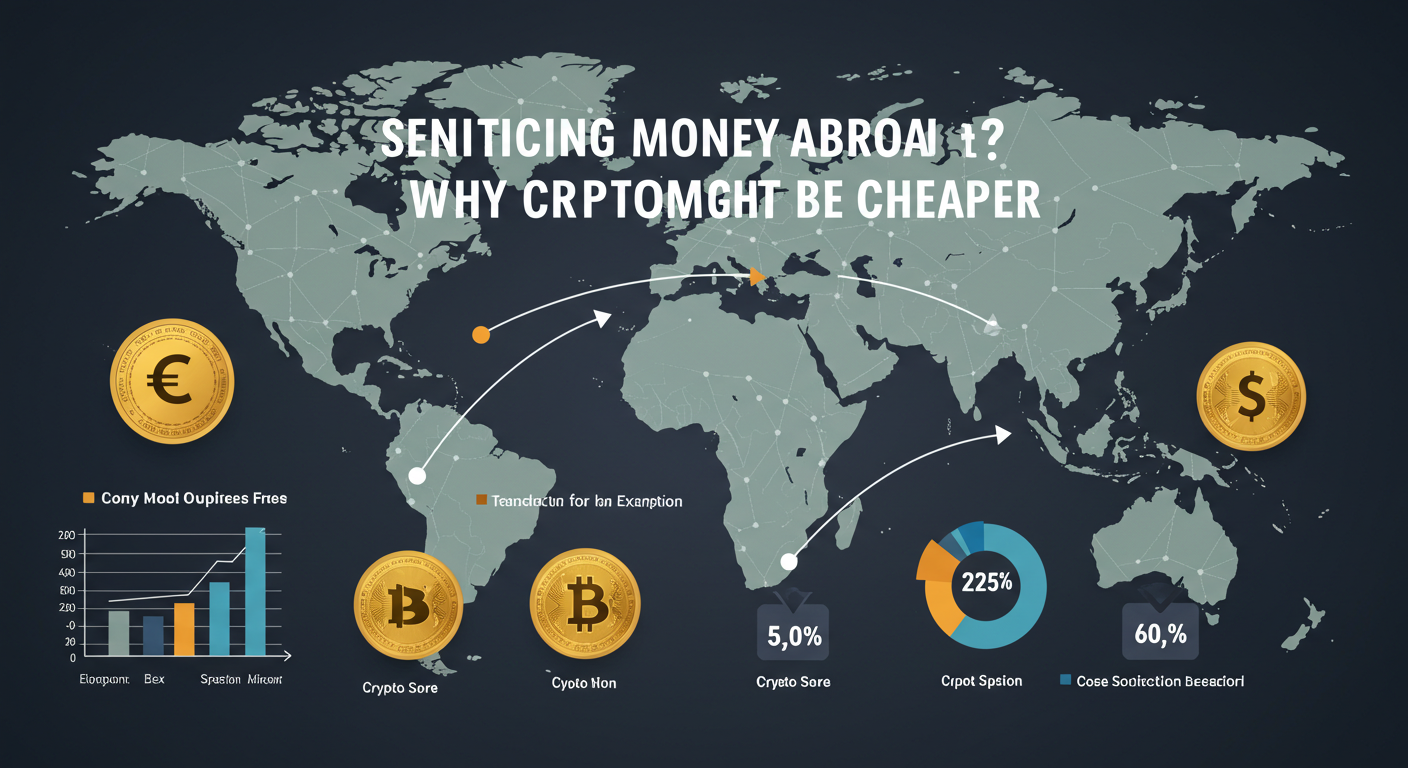
Sending Money Abroad? Why Crypto Might Be Cheaper
- Posted on: June 1, 2025
In today’s global economy, sending money abroad is a common need — whether you're paying tuition, supporting family, doing business, or freelancing for international clients. But if you've ever used a traditional bank or money transfer service, you've probably felt the sting of high fees, poor exchange rates, and long waiting times.
That’s where cryptocurrency is changing the game. More and more people are realizing that crypto might actually be a faster, cheaper, and more convenient way to send money across borders.
The Problem with Traditional Transfers
Sending money abroad through banks or remittance services like Western Union and MoneyGram comes with a few key issues:
High Transfer Fees: Banks and remittance companies often charge between 5% to 15% of the amount sent.
Hidden Exchange Rate Costs: They offer less favorable exchange rates than the official market rate.
Delays: Transfers can take 1 to 5 business days or more, especially when sending to developing countries.
Bureaucracy: You may need to fill out forms, provide IDs, and explain the purpose of the transfer.
These issues make traditional transfers expensive and slow, especially for smaller transactions.
Why Crypto Is Often Cheaper
Cryptocurrencies like USDT (Tether), BTC (Bitcoin), and ETH (Ethereum) are increasingly being used to bypass these barriers. Here's why:
1. Lower Transaction Fees
On networks like Tron (TRC-20) and Binance Smart Chain (BEP-20), sending stablecoins like USDT can cost as little as $0.10 to $1, regardless of the amount.
This is significantly cheaper than bank fees, which often grow with the amount being sent.
2. No Currency Conversion Loss
When sending crypto, you avoid unfavorable exchange rates imposed by banks or remittance platforms.
The recipient can choose when and how to convert the crypto to local currency, often at better market rates.
3. Faster Transactions
Crypto transactions are almost instant on many blockchains. TRC-20 transactions, for instance, usually settle in under a minute.
There's no need to wait days for bank clearance or worry about public holidays and weekends.
4. Borderless and Accessible
Crypto doesn’t care about location. You can send funds from Nigeria to Ghana, the US, the UK, or anywhere else — no need for SWIFT codes or correspondent banks.
All you need is a smartphone and a crypto wallet.
Real-Life Use Case: Nigerian Freelancer Gets Paid in Crypto
A Nigerian freelancer working for a UK-based client used to receive payments via PayPal, losing 6–8% in fees and currency conversion. Now, the client sends USDT via Binance P2P or a wallet like Trust Wallet, and the freelancer receives it in minutes — saving money and gaining full control over conversion timing.
Common Cryptos Used for Transfers
USDT (Tether) – Most popular stablecoin for cross-border payments.
BUSD and USDC – Other stablecoin alternatives.
Bitcoin & Ethereum – Also used but can have higher fees depending on network congestion.
EOT (EootleX Token) – [If relevant to your platform] Could be an even cheaper option when integrated into the EootleX ecosystem.
Things to Keep in Mind
While crypto is a powerful tool for international transfers, there are a few considerations:
Volatility: Avoid sending volatile coins (like BTC or ETH) unless the receiver is prepared.
Scams: Always double-check wallet addresses and only use trusted platforms like EootleX.
Regulations: Some countries have restrictions on crypto use. Stay informed about local laws.
Final Thoughts
If you're tired of the high fees, slow processes, and unnecessary stress of traditional money transfers, it may be time to explore crypto. Platforms like EootleX make it easy to buy, send, and receive stablecoins with speed and transparency.
Whether you're supporting family, paying for education, or doing business internationally, crypto might just be the smarter — and cheaper — way to go.
